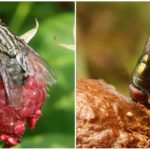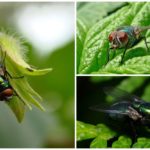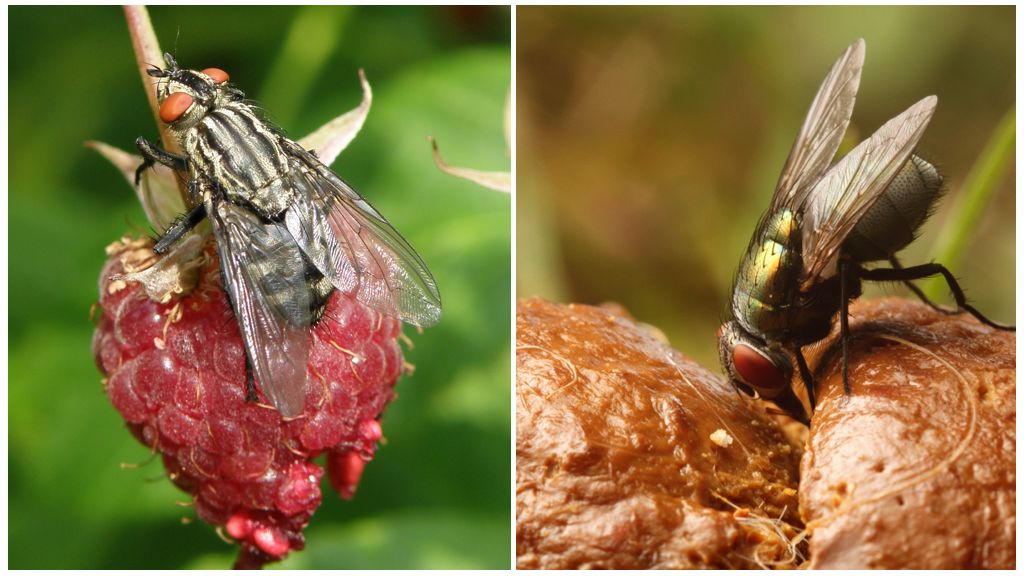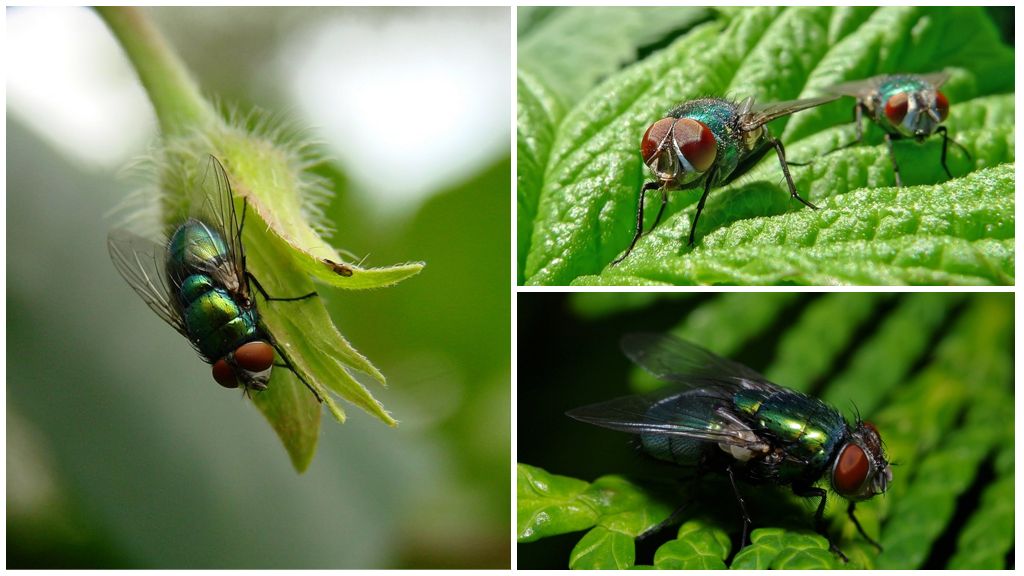What is the use of flies
Content
- Flies in nature
- Flies in nature
They try to get rid of annoying flies, not to let them into the room. For baiting used high-speed poisons. Insects carry dangerous diseases, intestinal infections, promote the spread of helminth eggs, the larvae cause myase. By the end of the summer in the house appear flieswhich also bites painfully. Often the question arises - why do we need flies.
The main purpose of insects
The benefits of flies are especially their power supply, vital activity, habitat.Spreading of infection, bacteria, they become reluctant, in contact with the environment, which is teeming with pathogens.
For the development of larvae requires semi-fluid medium, as well as a large amount of protein. Females lay eggs on rotting, spoiled food, vegetables, fruits, decaying parts of plants, as well as meat, corpses, deep wounds on the body of animals, humans, left without proper attention. A large number of larvae of different types of flies develops in faeces, garbage, pits, drains, drains, sewers.
They eat liquid food - juices. Favorite dishes - honey, jam, syrup, ripe fruit, lemonade. In the absence of these products go to a more solid food. Initially, it is treated with a special secret - saliva, then sucked. But most of all, and bring benefits and harm meat fliesthat develop in the meat of animals, fish, rotting wounds of man.
On a note!
The benefits of flies are the ability of their larvae to decompose tissue. Larvae are nature orderlies. If there were not these creatures, everywhere there would be decaying corpses of animals, birds, rotting plants, fruits, vegetables.Female flies are attracted by the smells of rotting, sweat, and bacteria.
What are flies for?
At the time of the First World War, one feature was noticed by the doctors: the larvae ate rotting tissue in the wounds of the patients, prevented the reproduction of the pathogenic microflora. The larvae secrete a special secret that is the strongest antibiotic. This allows maggots to freely exist in an aggressive environment, and this feature is used by physicians to treat severe wounds that are not amenable to antibiotics. Maggots are grown specifically in sterile conditions.
Hard eye flies became the basis for the development of a modern camera. A unique camera makes more than 1 thousand frames at a time, after pressing the shooting button. Body structure and flying ability formed the basis for the creation of many structures in aviation. Research is ongoing, it’s not completely clear how the fly sits on the ceiling upside down, takes off without preliminary acceleration, freezes in the air, turns off one or another wing during flight. Flies benefit from their presence because they provide numerous aspects for research. Flying fly and the insect reaction is compared with the flying plate - UFO.
On a note!
Looking for flies in nature as pollinators of plants. Many species feed on juices, nectar, pollen on their paws, carry with them. Often pollinated by unique plants that smell of carrion, rotting products. The unpleasant smell frightens away bees, wasps, hornets, for flies - this is an attractive scent.
Meat flies have an attractive color. Their body shimmers beautiful green color, bluegray with a metallic sheen. In the wild - a subject for aesthetic pleasure, if you do not touch it with your hands.
Mosquitoes and flies in the ecosystem
Fishermen use maggots, mosquito larvae for catching large fish. Buy a special bait or bred themselves. Owners of aquariums and terrariums acquire unusual food. They eat maggots of birds, lizards, frogs, chameleons, spiders.
We need flies in nature, an ecological system to maintain the food chain. Adults and their larvae become a delicacy for amphibians, birds, other insects, spiders. The ground beetle eats flies. For fun, hunt for buzzing insects cats, dogs.
Interesting!
Maggots are bred in special containers, providing favorable conditions for existence. As a habitat, food choose meat of animals, birds, much less fish. At a certain stage of development - after 2 molts, they are placed in a cold environment to prevent pupation.
Lifestyle - useful and harmful sides
The most important destination of flies - the decomposition of tissues, and brings benefits and harm. Living in an unfavorable environment, and then, sitting down on food, insects spread pathogens. The most dangerous disease is leprosy, the most common is intestinal infection.
The larvae can live for some time under the skin, in the intestines, internal organs, eyes. Penetration of maggots in the brain, causes a fatal outcome. Therefore, it is necessary to take all possible measures to prevent flies from entering the house, carefully processing vegetables and fruits brought from the street.









